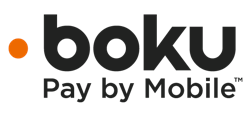Another sign of the significant investment and attention going into the mobile payments market and the competition that is heating up among the bigger players: BOKU is today announcing a significant new round of funding totaling $35 million, to be used to continue building out its payments business.
Of that amount, TechCrunch understands that $30 million will be coming from VCs and angels led by new investor NEA, with participation also from existing investors including Andreessen Horowitz, Dag Ventures, Index Ventures and Khosla Ventures. And $5 million will be coming from a new strategic investor, the carrier Telefonica.
This brings the total amount invested in the company to $75 million. Previous rounds saw BOKU raise $13 million in June 2009 and $25 million in December 2009.
The new funding will be used to help build out BOKU’s new products beyond the virtual goods business that has been its bread and butter up to now. That includes services along the lines of a new NFC payments system BOKU announced last month with MasterCard, which will see the company move into enabling purchases of physical goods.
Before today, BOKU already had an extensive business in the mobile payments space. It currently works in 66 countries and with 40 currencies, and has deals with more than 250 carriers covering some 3.2 billion consumers. While it does not disclose exact revenue figures, BOKU says it processes “hundreds of millions of dollars in mobile payments.”
Building up that scale, and its customer base, are significant mandates for BOKU as the mobile payments market continues to grow — and competitors continue to crop up. PayPal just this week announced a new mobile wallet service; Google is making further inroads into how its Wallet works across its spectrum of services, and companies like Square continue to add new ways to use its little dongle to pay for this (the latest: taxis). And companies like Bango, enabling payments for existing BOKU customers like Facebook, perhaps hit closer to home.
Meanwhile, the explosion in smartphone use has driven a lot of consumers to become more amenable to the idea of using their devices to pay for things, not just mobile content but goods in the world beyond the device.
As for the strategic investor, it makes sense that of all the companies that would make a strategic investment in a company like BOKU, it is Telefonica.
The two have been working together since August 2011, when BOKU signed a deal to provide backend mobile payments services for Telefonica’s in-house API program, BlueVia, to create apps for Telefonica’s 231-million subscriber base across Europe and Latin America (nearly 300 million counting fixed-line customers). That deal gave developers the ability to integrate carrier billing directly into their apps.
That relationship will now extend to BOKU becoming the preferred payment provider a mobile wallet service that Telefonica is currently preparing to roll out across the whole of its footprint. That will include access to BOKU’s merchant network and the ability to make both online and offline payments, and enhancements to Telefonica’s carrier billing service.
Telefonica says that the first of its mobile wallet services will be coming out in the first half of this year.
BOKU’s co-founder and president, Ron Hirson, tells me that the Telefonica investment will not mean exclusivity for the carrier: “It’s the first investment from a carrier, yes, but because we are a platform for billing, there is no exclusivity in what we do,” he said. “We welcome as many folks into the fold as possible.”
Indeed, the company continues to work with Facebook — it processes payments for Facebook Credits via mobile devices — and other carriers like Vodafone for its carrier billing service.
Telefonica has made a number of strategic investments over the years, including, most recently, participation in an $85 milion round of funding for cloud computing company Joyent, and it has lately also established a European incubator program called Wayra.
